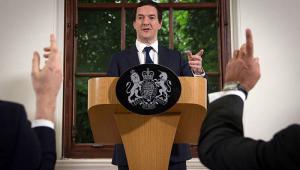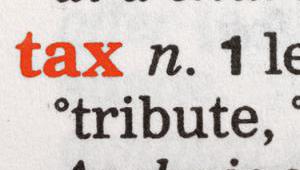In a document produced by the Remain campaign, Osborne highlighted a consensus among economists that leaving the EU would damage Britain’s economy, both in the short term, due to uncertainty, and in the long term as a result of less trade and investment.
An analysis by the Institute for Fiscal Studies found that leaving the EU would mean £20-40bn less in revenue for the Treasury by the end of the decade.
Using the midpoint of this estimate, Osborne today set out what he called the likely impact on public services and taxation.
The balance between tax and spend would be up to the government at the time, but options included cutting spending by an estimated £15bn by 2019-20, including £2.5bn from health spending, £1.1bn from education and £5.75bn from other departments. There could also be a £15.7bn tax increase, mostly made up of putting 2p on the basic rate of income tax to raise it to 22p (£9.7bn) and adding three pence to the current 40p higher rate (£3.5bn).
Writing in The Times ahead of a joint appearance with his predecessor Lord Darling, Osborne said leaving the EU would lead to a "profound economic shock that would hit the economy and could tip Britain back into recession".
They wrote: "We know all too well what happens when Britain loses control of its public finances. We're agreed that a vote to leave risks doing the same thing to Britain all over again."
However, the Vote Leave campaign issued a list of 57 Conservative MPs who said they would not vote for Osborne’s “absurd” Brexit Budget, meaning the government would have no majority.
Vote Leave chief executive Matthew Elliott said the document amounted to a “reckless teenage temper tantrum”.
He added: “Threatening to vandalise the economy has led to his MPs effectively declaring no confidence in him. The prime minister must reflect on the failure of his appalling scare tactics and stop undermining the British economy for his own political interests.”
The row comes after a series of opinion polls found an increase in support for Leave ahead of the 23 June vote, with polls from both ICM and YouGov showing leads for the Brexit side.





















